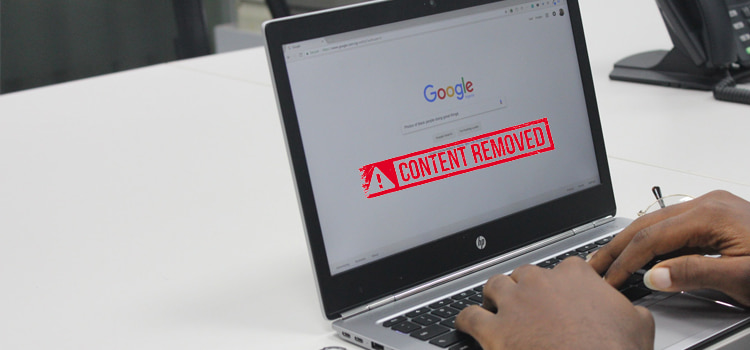Legal Remedies to Get Objectionable Content Removed from the internet
Posted On : October 26, 2021

Table of Contents
The internet is a very useful tool as it gives us our required information in an instant. However, some conmen corrupt this beneficial platform. Posting obscene and objectionable content has become common nowadays, with the rise in data connectivity. Therefore, the nation's judicial system introduced Cyber Law in 2000 to legalise the circulation of data on the internet with the help of cyber lawyers in India.
What is Cyber Law?
Cyberlaw, also termed IT law, comprises the guidelines that an individual or e-commerce firm must follow to circulate data and use the online platforms. The law covers various spheres like fraudulence and e-payment scams, copyright violations, defamation of individuals, protection of algorithms, etc.
In addition, this law monitors all the financial transactions that occur on the Web, including e-filing and e-commerce transactions. Thus, IT law also acts as vigilance to all the activities on the internet. If you belong to Tamil Nadu, the Lawyers in Chennai will guide you more about this law.
How to Remove Obscene Content as per IT Law?
Sections 66E, 67, and 67-A of the IT act allow individuals to legally remove their objectionable content from the Web. The first step in this regard is the person's report to the cyber cell or the local police station (in the absence of a cyber cell). The cyber cell registers the complaint and informs the concerned agencies to remove the content under discussion.
According to the latest amendments in the Cyber Law, the intermediary must remove the objectionable content within twenty-four hours of receiving the grievance from the cyber cell or police officials. The agencies do not need to produce any court order for the removal of such content. You can get further guidance from the officials at Vidhikarya.
The internet is gradually becoming a risky zone, especially for those who do not pay heed to the authenticity of the websites they surf. Thus, the legal advisors at Vidhikarya suggest you to be aware of fraudulence and phishing while browsing the Web. So, visit the website of the Vidhikarya team and get the best assistance and guidance concerning cyber law!
























